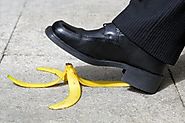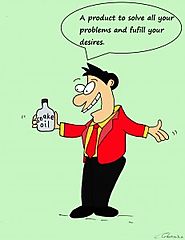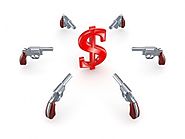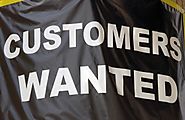-
About
- About Listly
- Community & Support
- Howto
- Chrome Extension
- Bookmarklet
- WordPress Plugin
- Listly Premium
- Privacy
- Terms
- DMCA Copyright
- © 2010-2025 Boomy Labs

 Cynthia Kocialski
Cynthia Kocialski
Listly by Cynthia Kocialski

You've got a new product or idea. Now, it's time to do a competitive analysis. This type of exercise will show you where and how your product fits into the marketplace. Even doing a simple competitive analysis will put you ahead of most small businesses and start-ups, and it will help you define your competitive strategy for your business.

An effective sales and marketing strategy relies upon a firm understanding of consumer behavior and consumer psychology. This is especially true in today's marketplace, which has made the jump to internet where an entirely new set of dynamics are at play when it comes to marketing and selling to consumers.

Many entrepreneurs don't quit their day job when starting a business. They want to peace of mind of a guaranteed income, yet they dream of starting a new business - no risk versus risk. Their strategy is often to pursue both. They start their new business as a side activity, which consumes their leisure time.

We have all been exposed to thousands of advertisements. The good ads produce results, while the bad ones are a just wasted expense. This post reflects the concepts presented in the book, "The Wizard of Ads". In general, there are two broad categories of ads: intellectual and information based, or emotional or experience focused.

Nolan Bushnell is one of the most incredible businessmen in the world, and yet, most people have never heard of him. A big reason for that is because while pop-finance brains were writing a new best-seller every year, Mr. Bushnell was starting new companies.

Are you using the same sales techniques that you just years ago? Well, maybe it's time to step back and take a look at how sales strategies have improved over recent years, and decide whether a yours needs a sales tune-up. Buying and selling are understood to be two sides of the same "coin" or transaction.

Guest Post by Todd Ramsey Your most unhappy customers are your greatest source of learning." Bill Gates Often we, as sales people and leaders, shy away from conversations that are sometimes difficult. We avoid calling back the angry customer or see the time we spend on an 'after sale' issue as wasting valuable time.

Guest Post by TJ Rohleder People will buy almost anything that they believe will help them feel better about themselves. That's a simple, all-inclusive statement, but there's a lot of truth in it. You see, that desire to feel better is a kind of pain - and you already know that people are willing to spend plenty of money on solutions that ease their pains.

It's happens to every business owner. A customer wants your product or service, but when you state the price, they want to negotiate a lower price. Even if it's a fair price, customers will still try to get a lower one. What should you do? Should you even engage in a price negotiation?

The words - price war - are enough to strike fear and dread into business people. It doesn't matter if you are a big company or a small one. So why do companies start them, how should you respond, and how do they expect to win?

Every entrepreneur wants to know how to attract more customers. There are two factors necessary for capturing their attention, both center around understanding customer behavior. First, is to make your customer aware of the product or service. In its simplest form, marketing educates people.
